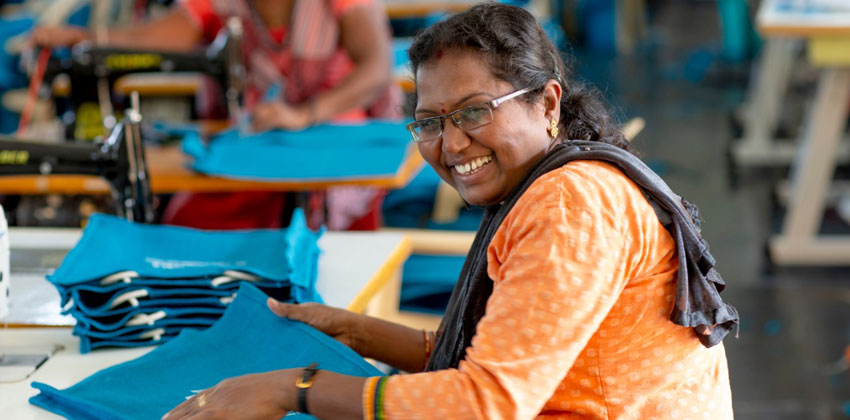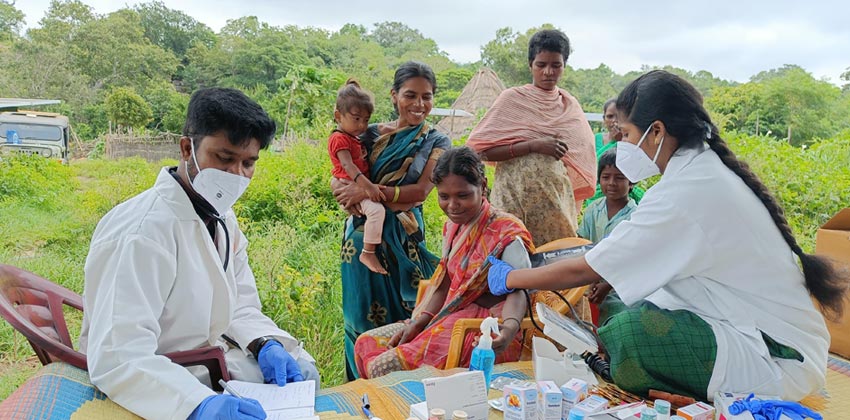You check out of the Apollo Personalized Health Checkup in Chennai. The receptionist has your medical reports (it’s all good, as you had hoped), which she stacks neatly in a bright blue jute bag. You come home and fold the bag to stash it away in a cupboard, where all the other bags are. In another week, you will probably be bringing home your vegetables in that bag. For the next 3 years, it will serve its purpose, before eventually degrading naturally.
But for that single bag to reach your hands, it took 12 people toiling for almost 4,500 hours.
Let’s do the math:
| Process | Time taken | People involved |
| Growing jute | 150 days (3600 hours) | 3 |
| Harvesting, retting and stripping | 33 days (792 hours) | Same 3 |
| Transporting from field to mill | 10 hours | 1 |
| Fabric woven in mill | 2 days (36 hours) | 3 |
| Transporting from mill to Total Health skill centre | 10 hours | 1 |
| Bag making in skill centre | 10 hours | 4 |
| Transporting from skill centre to hospital | 5 hours | 1 |
Jute is one of the most sustainable fibres in the world, being rain-fed with little need for fertilizer or pesticides, long-lasting and completely biodegradable. Plus, it is native to India – India and Bangladesh contribute to 95% of jute cultivation in the world.
So when Total Health in Aragonda set up its first skill centre, now under the Aragonda Vikas Trust, a separate entity which operates as a social enterprise, the team began to train the women of the community in stitching sustainable jute bags. It aligned with Total Health’s vision of community and planet health being inseparable.
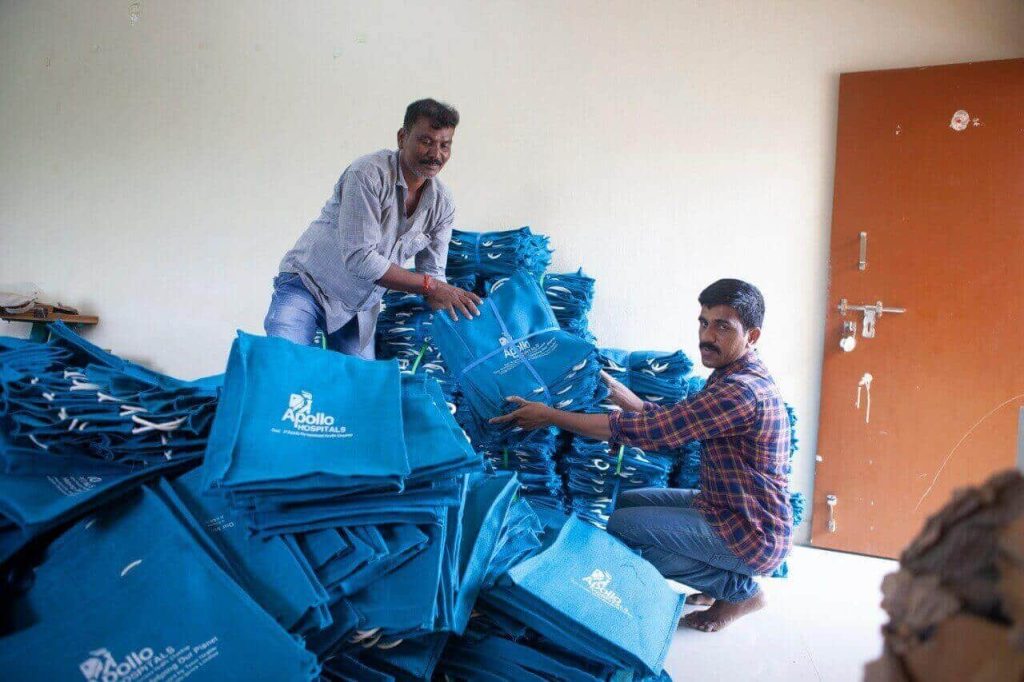
First, they harvest
The Ganges plain, in West Bengal, Bihar, and Assam, is most fertile for the cultivation of jute. About 120 to 150 days after it is sown, jute is ready to be harvested. Bundles of jute stalk are steeped in water for 20 days in a process called retting, to separate the bark from the fibre. Standing in waist deep water, farmers take handfuls of stalks and strip the fibre off them. Washed and sun-dried, these are then packed in bales and sent off to mills.
Next, they weave
Total Health sources its jute fabric from the 100-year-old mills of Eluru, Vijayawada. In jute mills, jute reeds are softened, broken and thinned to extract ribbon-like slivers of fibres. These slivers are spun into yarn and woven into fabric. The fabric sheets are pressed between heavy rollers to iron them out before cutting them into required portable sizes.
About 6,000 metres of bright blue fabric is loaded onto a lorry in Vijayawada, ready to make the 10-hour journey to Chittoor. In another smaller vehicle from Chennai, arrive the accessories – zip runners, threads, Velcro, Fevicol and fabric colour pigments. From there, autos make the last mile delivery, puttering their way to our complex in the village of Aragonda.
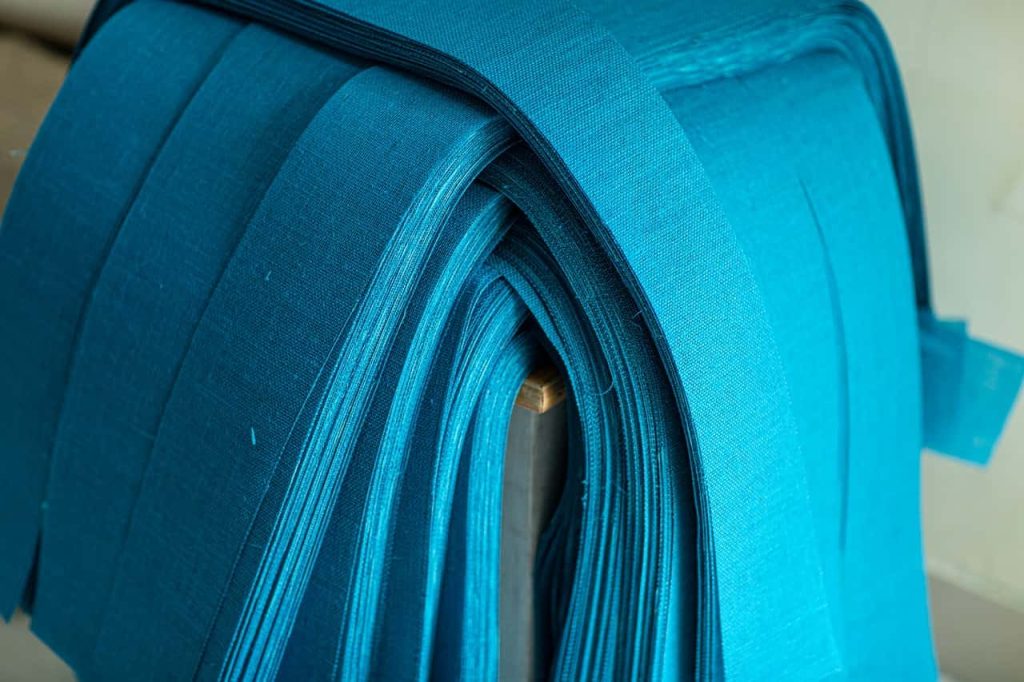
Then, we stitch
When the sheets arrive at the Aragonda Vikas Trust skill centre, they need to first be cut into workable sizes. A cutting machine with a whirring blade operated by one of the team members presses down on almost 50 sheets at once.
The sheets are of two kinds: raw, and laminated, which has an additional thin layer of polypropylene applied to the inside to stiffen the fibre. At the skill centre, we mostly use the non-laminated sheets. The sheets are then screen-printed with the Apollo Hospitals logo. The worker pours colour pigment on a mesh with the logo or design on a stencil, and rubs it in, back and forth, using a squeegee.
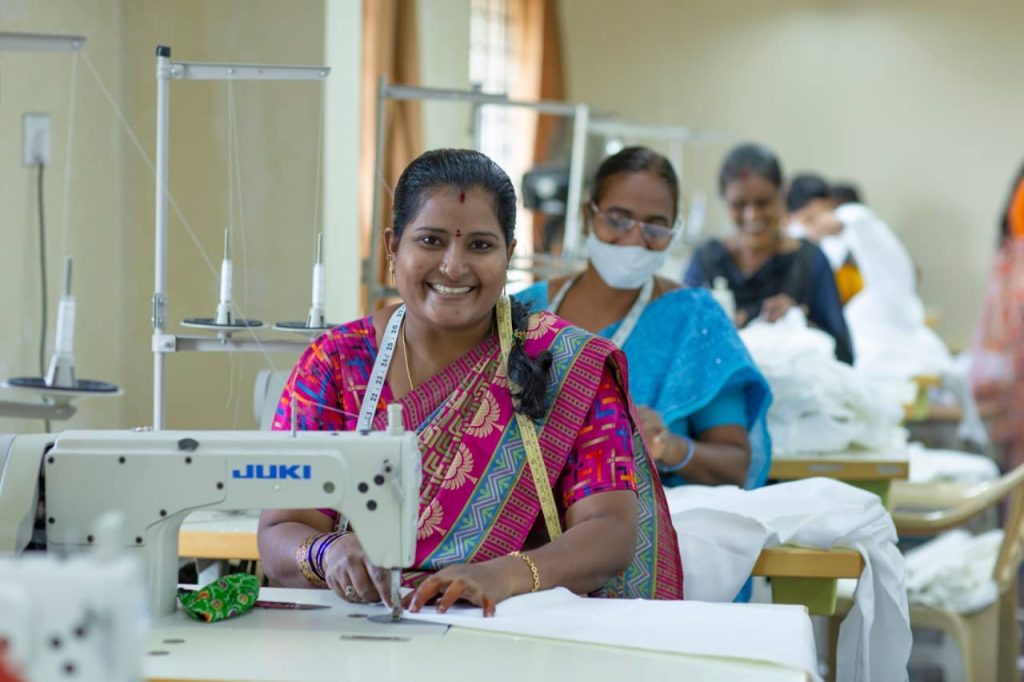
The workshop is abuzz with the sounds of needles at work as the 20 women tailors cut and stitch the printed sheets into bags of different sizes. One experienced tailor stitches up to 50 bags in a day. About 20 types of products ranging from shopping bags and water carriers to laptop bags and folders, all made of jute, are manufactured right here in this room.
Once a month, 8,000 bags are packed and shipped off to Chennai, Hyderabad, and Kolkata, where they are used by Apollo Hospitals to put in medical records. And where they reach you, dear reader.
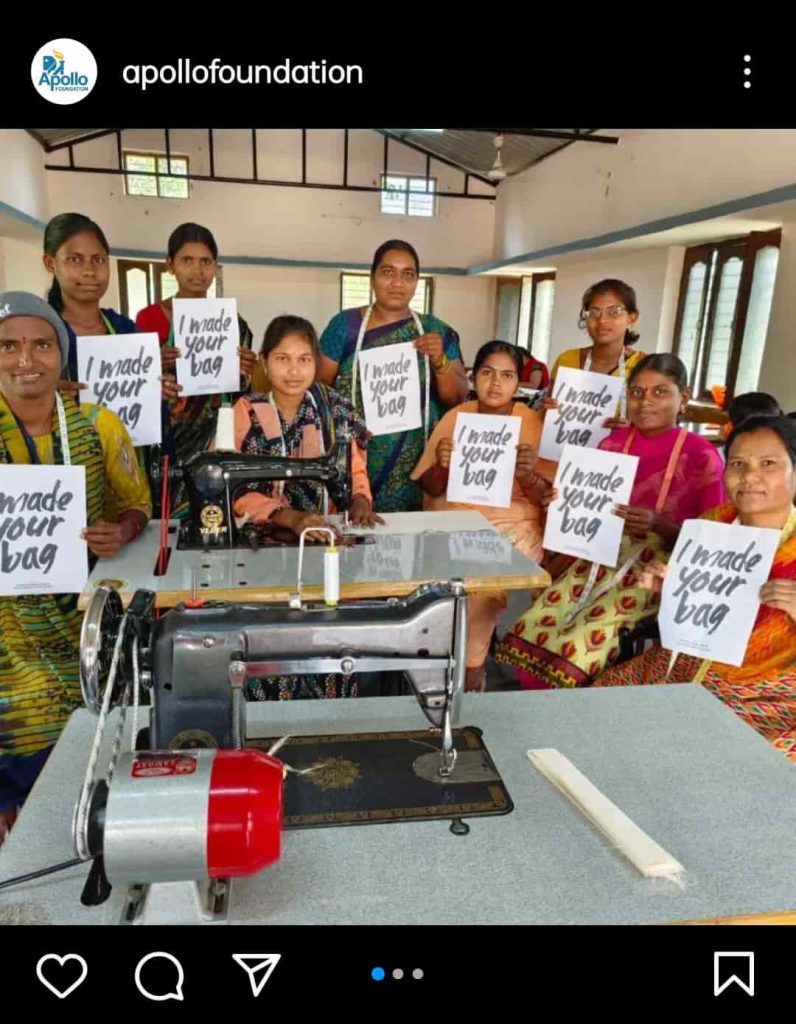
So when you hold a jute bag in your hand, you are holding the weight of 4,500 hours of labour. Using a bag like this also means you are helping everyone from the farmer and the employees working in the jute mill, to the women in Aragonda, who are able to earn a living, put their children through school, buy a scooter, because of these bags.
Would you like to order in bulk? Mail us.
